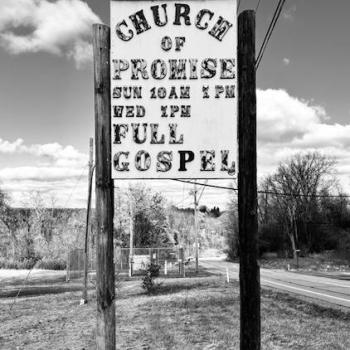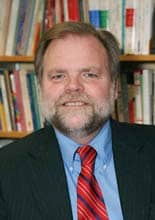 Amid the debt ceiling debates, a well-known political pundit speculated on the following question: "Can America do great things anymore?" This is a key question as we look to our nation's future. It is a political and economic question. For those who take biblical spirituality seriously, it is also a spiritual question. It is a question of vision and purpose. As one scripture asserts, without a vision the people perish.
Amid the debt ceiling debates, a well-known political pundit speculated on the following question: "Can America do great things anymore?" This is a key question as we look to our nation's future. It is a political and economic question. For those who take biblical spirituality seriously, it is also a spiritual question. It is a question of vision and purpose. As one scripture asserts, without a vision the people perish.
Liberals and progressives are often nervous about postulating a national vision. We are well aware that claims of American exceptionalism may lead to imperialism and the rebirth of manifest destiny. Still, the biblical tradition more than once suggests that nations, like persons, have particular vocations for their time and place. A nation can legitimately claim a vocation in our global era if it is willing to affirm the vocations of other lands in the global community.
I don't assume to know America's vocation, nor do I assume to know in detail the biblical vision for nations in general. After all, the Bible is a library of perspectives from which many visions can appropriately emerge. Nevertheless, I want to suggest a number of guideposts for reflecting on America's vocation. These are adventure, justice, community, sacrifice, healing, and globalism.
The Bible is an adventure book. God constantly calls persons and institutions to go from the familiar to the unknown. God is the holy adventurer who wants us to do new things, go new places, and dream new dreams. We cannot go back or stay where we are. We must go forward to be faithful to the living God. (I speak about our role in God's adventure in my book, Holy Adventure: 41 Days of Audacious Living.) Nations are called to explore possibilities and be guided by imaginative visions that lure them to new horizons.
The biblical adventure is aimed at justice. While God loves the wealthy as well as the poor, the biblical mandate for persons and nations is to love mercy and seek justice. Nations are judged by their care for their most vulnerable citizens—widows, orphans, the homeless, outcasts, foreigners, and elderly. Rampant profit-seeking at the expense of the vulnerable leads, as the prophet Amos proclaims, to a famine on hearing the word of God.
Community is essential to biblical theology, spirituality, and politics. Shalom is at the heart of biblical economics and politics. Shalom means wholeness of persons and communities. Later, the apostle Paul speaks of the interdependent body of Christ, where the pain of one touches all, and the success of one uplifts all. There are no self-made persons; we are intended to live in community. Our property is on loan and subject to the needs of the vulnerable and the wellbeing of the community. While scripture encourages creativity and initiative, there is no room for rugged individualism and selfishness in biblical ethics and economics.
Biblical ethics is about sacrifice of self-interest for the greater good. Acts 2 presents a vision of community in which everyone has what they need precisely because people sell what they have to care for the community's most vulnerable members. This is not a prescription for socialism or communism, but economics that bring well-being to all creation. Generosity, concern for others' well-being, willingness to sacrifice out of our largesse for the well-being of others is a mandate for those who follow the God of Israel and Jesus. While the biblical tradition does not speak about contemporary tax codes, it is clear about life in community: the wealthiest and most privileged members are obligated to sacrifice portions of their wealth to care for the vulnerable.
Jewish spirituality speaks of our vocation in terms of tikkun 'olam, healing or mending the world. Jesus the healer touched peoples' bodies, restoring them to physical well-being and their place in the social order. Healing is about welcoming all things into the community of God: no one is neglected, forgotten, or excluded, and in light of Romans 8, this includes the whole earth.
The earth groans, the apostle Paul proclaims. Our wellbeing and the earth's are interconnected. If we aren't healing the earth, we have missed God's call to stewardship.
Finally, biblical spirituality invites us to have a global perspective. God cares for the Jewish people. But, the Jewish people's vocation is to be a light to the nations, enabling other people to discover their vocation. We can affirm "God bless America" but we must equally affirm "God bless the whole world, no exceptions." We must judge our national policy in terms of its impact on the whole earth, including the non-human world and future generations.





